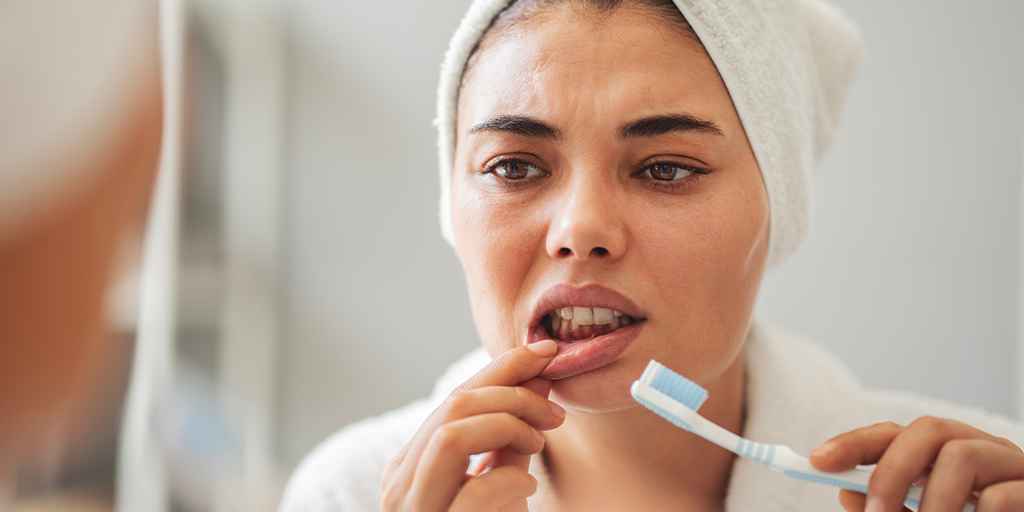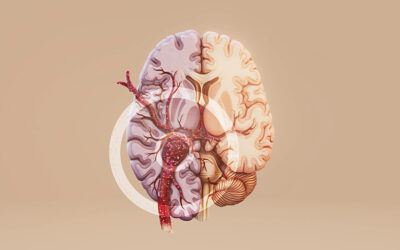Why Do My Gums Bleed While Brushing?

Noticing blood while brushing your teeth can be alarming, yet it’s more common than what most people think. While occasional gum bleeding may occur from brushing too hard, frequent or persistent bleeding often signals an underlying issue such as gum disease, vitamin deficiency, or poor oral hygiene. Ignoring gum bleeding can allow minor inflammation to progress into more serious conditions, such as gingivitis or periodontitis. This is why maintaining good dental hygiene and seeking timely evaluation from a dentist are essential to prevent complications and preserve gum health. In this article, we will explore what bleeding from gums indicates, its common causes, early signs of gum disease, effective treatments, and some tips to maintain healthy gums.
Table of Contents
ToggleWhat Do Bleeding Gums Mean?
Bleeding gums are often the body’s way of signalling that something isn’t right with oral health. While brushing too vigorously or using a hard-bristled toothbrush can sometimes cause minor bleeding, frequent bleeding usually points to gum inflammation or early gum disease (gingivitis).
When plaque, a sticky film of bacteria, builds up along the gum line, it irritates the surrounding tissues, making them red, swollen, and more likely to bleed. If left untreated, this can progress into periodontitis, a more serious condition that affects the supporting structures of the teeth.
Understanding why gums bleed helps in identifying the root cause early and taking corrective steps before permanent damage occurs.
Common Causes of Bleeding Gums
Gum bleeding can be linked to multiple factors, ranging from everyday hygiene mistakes to underlying health conditions. The most common causes include:
- Plaque Buildup and Gingivitis: When plaque accumulates along the gum line, it hardens into tartar, triggering inflammation known as gingivitis – the earliest stage of gum disease.
- Brushing or Flossing Too Hard: Using a hard-bristled toothbrush or aggressive brushing technique can damage gum tissue and cause bleeding.
- Vitamin Deficiency: Lack of vitamin C and vitamin K weakens blood vessels and tissues, making gums more prone to bleeding.
- Hormonal Changes: Fluctuations during puberty, pregnancy, or menopause increase gum sensitivity and inflammation.
- Certain Medications: Blood thinners, anti-hypertensives, and some pain relievers may interfere with clotting, resulting in gum bleeding.
- Underlying Health Conditions: Diseases such as diabetes, infections, or bleeding disorders can reduce the body’s ability to repair gum tissue.
- Poor Oral Hygiene: Irregular brushing, skipping flossing, or ignoring dental check-ups allow plaque and bacteria to accumulate, increasing the risk of gum disease.
Understanding these causes helps prevent further irritation and ensures proper gum care.
Signs and Symptoms of Gum Disease
Gum disease often develops gradually, and many people do not notice it until discomfort or bleeding becomes frequent. The most common symptoms include:
- Red, Swollen, or Tender Gums: Inflammation makes the gums appear puffy and sensitive to touch.
- Persistent Bad Breath: Bacteria trapped beneath the gum line produce unpleasant odours.
- Receding Gums: The gum line starts to pull away, exposing more of the tooth surface.
- Pain or Discomfort While Chewing: Gum inflammation can make eating difficult or uncomfortable.
- Loose or Shifting Teeth: Advanced gum disease weakens the structures supporting the teeth.
Identifying these signs early and seeking timely dental care can help reverse the effects of gingivitis and prevent permanent damage.
Spitting Blood While Brushing Teeth: What does it Indicate?
Seeing traces of blood while brushing or flossing is often an early warning sign of gum inflammation. Occasional bleeding may occur if the gums are irritated by vigorous brushing or a new flossing routine, but frequent bleeding usually signals the onset of gingivitis or poor oral hygiene.
When plaque and bacteria accumulate along the gum line, they irritate and inflame the surrounding tissues, causing them to bleed even with light pressure. In some cases, spitting blood while brushing can also point to vitamin deficiency or an underlying health issue such as diabetes.
If bleeding persists for more than a few days, it’s important to consult a dentist specialising in gum disease to determine the cause and prevent further complications.
When to See a Dentist for Gum Bleeding?
While mild gum bleeding can result from brushing too hard, frequent or prolonged bleeding should never be ignored. Persistent symptoms often suggest gum infection or other oral health problems that require professional care. You should see a dentist if you notice any of the following:
- Bleeding that occurs daily or worsens over time despite gentle brushing.
- Swollen, painful, or receding gums that expose tooth roots.
- Pus or foul taste in the mouth, indicating possible infection.
- Loose or shifting teeth, a sign of advanced gum disease.
- Bleeding even without brushing, especially when eating soft foods.
Consulting a dentist specialising in gum disease ensures timely diagnosis and personalised treatment to prevent progression to periodontitis and tooth loss.
Treatment and Remedies for Bleeding Gums
Timely intervention helps control infection, reduce inflammation, and restore healthy gums. The treatment for bleeding gums depends on the cause and severity of bleeding, but it may include both specialised dental care and home-based remedies.
Medical Treatment
- Scaling and Root Planing: Deep cleaning procedures that remove plaque and tartar deposits from below the gum line.
- Antibacterial Mouthwashes and Medications: Help reduce bacterial load and soothe inflamed tissues.
- Laser-Assisted Gum Therapy: Minimally invasive treatment that targets infected tissue and promotes healing.
- Restorative Procedures: Address gum recession or bone loss in advanced cases of periodontitis.
Home Remedies
- Saltwater Rinse: Rinsing with warm salt water reduces inflammation and bacteria.
- Aloe Vera or Turmeric Gel: Natural anti-inflammatory agents that soothe sore gums.
- Green Tea: Contains antioxidants that support gum healing.
- Proper Brushing and Flossing: Using soft-bristled brushes and correct brushing techniques prevents further irritation.
Combining professional dental care with consistent oral hygiene and a nutrient-rich diet strengthens gum tissues and helps prevent recurrence.
How to Prevent Gums from Bleeding While Brushing?
Simple daily habits can go a long way in keeping gums strong, infection-free, and resistant to bleeding. Below are some effective preventive measures to maintain long-term gum health:
- Brush Gently with a Soft-Bristled Toothbrush: Use a soft-bristled toothbrush and brush gently in circular motions at a 45-degree angle to the gum line. Avoid harsh horizontal scrubbing, which can injure gums. Floss gently between teeth to remove plaque and trapped food particles without snapping the floss into the gums.
- Floss Regularly: Clean between teeth to remove trapped food particles and reduce plaque buildup.
- Eat a Balanced Diet: A balanced diet including foods rich in vitamin C and vitamin K to strengthen gum tissue and improve healing.
- Rinse After Meals: Use an antibacterial mouthwash or water rinse to prevent plaque formation.
- Avoid Tobacco and Alcohol: Both irritate gums and increase the risk of infection.
- Stay Hydrated: Drinking enough water keeps the mouth clean and prevents bacterial growth.
- Visit the Dentist Regularly: Routine health check-ups and cleanings help detect early signs of gum disease and prevent complications.
Consistent oral hygiene and professional guidance are key to preventing gum bleeding and maintaining healthy gums for life.
Why Choose Graphic Era Hospital for Dental Care?
At Graphic Era Hospital, Dehradun, dental specialists provide complete oral health solutions including the prevention, diagnosis, and treatment of gum problems. The department combines advanced technology with compassionate care to ensure effective and comfortable treatment for every patient. Here’s why people in and around Dehradun are choosing Graphic Era Hospital for comprehensive dental care:
Experienced Dental Specialists
At Graphic Era Hospital, our team of skilled dentists and periodontists carefully evaluates gum health, identifies the underlying cause of bleeding, and designs personalised treatment plans to restore comfort and confidence in every smile.
Advanced Diagnostic and Treatment Techniques
We, at Graphic Era Hospital, use state-of-the-art technology, including ultrasonic scalers, laser therapy, and digital imaging, to ensure precise cleaning, early detection of gum disease, and gentle, minimally invasive care.
Patient-Centred Preventive Care
Our approach goes beyond treatment as we guide patients on oral hygiene, nutritional guidance, and home care practices to strengthen gums and maintain lasting oral health.
Say Yes to Healthy Gums and a Confident Smile!
Bleeding gums are an early sign that oral health needs timely care and attention. At Graphic Era Hospital, Dehradun, our dental specialists help patients restore healthy gums through professional cleaning, personalised lifestyle guidance, and simple daily care routines. With expert support and advanced dental technology, even early signs of gum disease can be effectively reversed before they lead to complications.
To book a consultation with a dentist at Graphic Era Hospital, call 1800-889-7351 today.
Frequently Asked Questions
Is it normal for gums to bleed while brushing?
No. Occasional bleeding may result from brushing too hard, but frequent gum bleeding often indicates inflammation or early gum disease. It’s best to have a dental check-up to identify the underlying cause.
What deficiency causes bleeding gums?
Deficiency of vitamin C or vitamin K can make gums fragile and prone to bleeding. Including citrus fruits, green vegetables, and nuts in the diet helps strengthen gum tissue.
How can I stop my gums from bleeding while brushing?
Use a soft-bristled toothbrush, brush gently, floss regularly, and maintain a balanced diet. If bleeding persists for more than a few days, consult a dentist for evaluation and treatment.
Should I visit a dentist if my gums bleed while brushing?
Yes. Persistent bleeding can indicate gum disease, infection, or other oral health issues. A dentist specialising in gum disease can diagnose the cause and recommend suitable treatment.
Are home remedies effective for bleeding gums?
Home remedies such as saltwater rinses, aloe vera gel, and green tea can relieve mild inflammation. However, professional cleaning is necessary to remove tartar and treat the root cause.
Why do my gums bleed when I brush my teeth?
Gums usually bleed due to plaque buildup, aggressive brushing, or poor dental hygiene. In some cases, it may also be linked to vitamin deficiencies or hormonal changes.
Where can I find the best dentist for bleeding gums near me in Dehradun?
The Department of Dentistry at Graphic Era Hospital, Dehradun, offers expert care for gum disease and bleeding gums. For appointments, book a consultation online or call 1800-889-7351.
By Specialities
- Bariatric Surgery
- Cancer Care
- Cardiology
- Dental
- Dermatology
- Diabetes & Endocrinology
- Endocrinology and Diabetes
- ENT (Ear Nose Throat)
- Eye Care
- Gastroenterology
- Haematology
- Health Awareness
- Health Care
- Health Tips
- Hematology
- Hepatology
- Internal Medicine
- Mental Health and Behavioural Sciences
- Metabolic
- Neonatology
- Nephrology
- Neurology
- Nutrition & Dietetics
- Obstetrics & Gynaecology
- Oncology
- Ophthalmology
- Orthopaedics
- Paediatric
- Physiotherapy & Rehabilitation
- Plastic and Reconstructive Surgery
- Psychology
- Pulmonology
- Rheumatology
- Spine
- Urology
Recent Posts
- Invest in You: How to ‘Give to Gain’ Years of Wellness this International Women’s Day
- World Hearing Day 2026: Empower Yourself to Protect and Improve Your Hearing
- Understanding Dementia: Types, Causes, Symptoms and Treatment
- A Complete Guide to Blood Clots in the Brain
- Heart Attack: Symptoms and Treatment
Need expert medical advice?
Share your details and our healthcare specialists will reach out to assist you.
By proceeding, you acknowledge and agree to our Privacy Policy, Terms of Use, and Disclaimer.




















